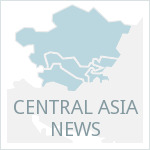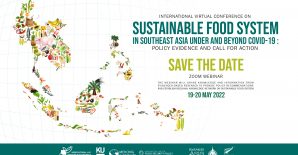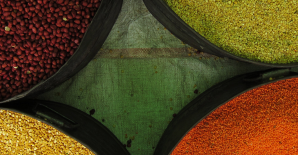News
WFP introduces its first cash assistance in Tajikistan
The United Nations World Food Programme (WFP) will partner with microfinance provider IMON International to launch its first cash assistance project in Tajikistan. The project will benefit 500 vulnerable families in Sharituz and Balkhi (previously J. Rumi) districts in Khatlon province. Participants will receive cash incentives in return for community work including the rehabilitation of irrigation systems, drainage canals, and roads. – ReliefWeb
Number of undernourished people in Tajikistan reported at 2.6 million
According to a report published by five United Nations agencies, approximately 2.6 million people in Tajikistan are affected by malnutrition, representing more than a third of the population. The prevalence of malnutrition in Tajikistan is the highest in Central Asia, although it has decreased from 41.5 percent to 30.1 percent between 2004 and 2016. WFP Tajikistan country director Paolo Mattei estimates that undernourishment costs Tajikistan $41 million annually. – Asia-Plus
Uztrade showroom opens in Tajikistan
Uztrade, which helps small and private businesses and farmers in Uzbekistan export their products, has opened a showroom in Tajikistan. The showroom will exhibit a wide range of goods made in Uzbekistan, as part of a wider goal to promote trade with neighboring countries. – Trend News Agency
Kyrgyzstan might recall its appeal to WTO against Kazakhstan
Kyrgyz deputy prime minister Tolkunbek Abdygulov signaled that his country is willing to rescind a complaint filed against Kazakhstan in the WTO following a resolution to the trade dispute that restricted the movement of goods between the two countries since October. It is widely believed that the source of the dispute was political in nature and related to the outgoing Kyrgyz president’s allegations of Kazakh meddling in Kyrgyzstan’s presidential elections, which concluded in November. – AKIpress
Compromise agreement resolves Kazakhstan, Kyrgyzstan gridlock
Kazakhstan and Kyrgyzstan signed an agreement that appears to have immediately resolved gridlock at border crossings. The breakthrough follows meetings between the presidents of Kazakhstan and Kyrgyzstan during a regional security summit in Belarus on November 30. The compromise envisions a role for the Eurasian Economic Union in assisting with border management. Some analysts believe that an underlying source of tension, the import of illegal goods from China to Kyrgyzstan, has yet to be fully addressed, however. – EurasiaNet
Kazakhstan inks economic cooperation roadmap with Kyrgyzstan, eases border control
A roadmap on bilateral economic cooperation was signed by representatives of the governments of Kazakhstan and Kyrgyzstan in Astana on December 2. The 50-point document is designed to address ongoing bilateral issues, largely concerning trade. The agreement followed discussions between the presidents of the two countries, which apparently paved the way for working-level negotiations. – Astana Times
Large scale sugar supplies from Russia to Uzbekistan launched
A group of Russian companies has launched a large-scale export program to send sugar to Uzbekistan. According to an official of the agro-holding company organizing the exports, this marks the first time in 26 years that Russian sugar supplies will be sent to Uzbekistan. In September, Uzbekistan removed 30 percent excise taxes on sugar imports. It is estimated that the country will have to import at least 120,000-150,000 tons in order to meet domestic demand. – AzerNews
All land owners to be registered in Uzbekistan
Owners of agricultural land will be registered according to a senior official at Uzbekistan’s State Statistics Committee. There are approximately 4.5 million farm entities in Uzbekistan and a pilot registration project is currently planned for Kibray district in the Tashkent region. The State Statistics Committee itself will receive $4 million to improve its technical capacity. – Trend News Agency
Analysis & Other Information
Can Central Asia's poorest states pay back their debts to China?
China holds 41 percent and 53 percent of the external government debt of Kyrgyzstan and Tajikistan, respectively, according to this analysis appearing on The Diplomat. While the author states that both countries are currently managing their debts well, he raises concerns about how new sources of debt or external shocks will affect their ability to pay in the future. – The Diplomat
Can India 'connect' with Central Asia?
While India has a vested interest in expanding relations with Central Asia, its current relations with its northern neighbors is marginal when compared to China and Russia. The author of this article believes that India and Central Asian countries have yet to describe what a deeper relationship would entail. She attributes some of India’s inability to make inroads to the lack of physical connectivity and characterizes India’s “Connect Central Asia Policy” (CCAP) as a belated response to China’s rapid advance into the region. – The Diplomat
Steps to liberalize Uzbekistan's export-import regime
U.S.-based law firm Baker McKenzie provides a summary and brief analysis of two presidential decrees signed by Uzbek president Shavkat Mirziyoyev regarding the liberalization of the country’s export and import regime. –Lexology
Publications & Reports
Key priorities to overcome the unequal access of rural women to resources in Tajikistan
T. Bozrikova (2017). International Agricultural Journal, 60(1), pp. 43-46.
The state of food security and nutrition in Europe and Central Asia
FAO (2017).
Gender and rural development issues in Kyrgyzstan
G. Kurmanova (2017). International Agricultural Journal, 60(1), pp. 27-31.
The water-energy-food nexus in Tajikistan: the role of water user associations in improving energy and food security
R. Shenhav, D. Domullodzhanov (2017). Central Asian Journal of Water Research, 2017, 3(2), pp. 54-72.
The state of food security and nutrition in the world (SOFI) report
World Food Programme (2017). Annual report.
Archived issues of the news digest can be found on the Central Asia page under the ReSAKSS Asia website: http://resakss-asia.org/regions/central-asia. A link to the newsletter can be found under Blog Posts.
The articles included in this news digest have been generated from online sources. Any opinions stated herein are not representative of, or endorsed by, the International Food Policy Research Institute or its partners.



